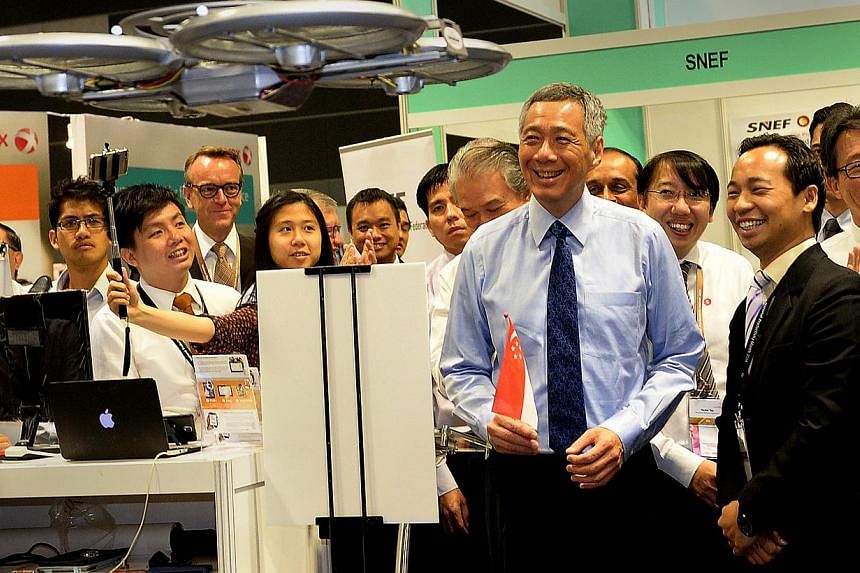SINGAPORE - Singapore's productivity push is for the long haul, and it must be a national effort "with everyone playing their part", Prime Minister Lee Hsien Loong told an audience of over 800 businessmen at the inaugural National Productivity Month, held by the Singapore Business Federation and Singapore National Employers' Federation.
Singapore started promoting productivity more than 30 years ago, but the productivity drive is even more pressing today, said Mr Lee. This is because the economy is now more developed and growing at a slower pace of about 3 per cent a year, there is less free land available, and the manpower situation is tighter.
But not only is productivity important for growth, it is also crucial for raising the incomes of workers, he added. In the short term, a tight labour market may make wages rise, but in the longer term, wage rises can only be sustained through higher productivity.
This is why Singapore has embarked on the next phase of the productivity drive, said Mr Lee, laying out its three-pronged approach.
First, the Government has incentives and schemes to support firms to upgrade productivity, whether by investing in technology, training workers or streamlining operations.
Second, foreign worker inflows are being controlled in order to put pressure on employers to upgrade their workers, instead of just hiring more. But companies still get enough access to foreign workers to complement their Singaporean workforce, so businesses can survive and Singaporean jobs do not disappear, added Mr Lee. He reiterated his comment last week that he does not expect any further major measures to tighten foreign worker numbers.
The third prong is making the productivity drive a national effort. Mr Lee set out the different roles which players should take.
Companies must have a "productivity mindset" and not be afraid to change for the sake of efficiency. Employers must seek to improve their operations, recognise their workers' skills, and value and train workers. Education and training institutions have to equip workers with relevant skills.
Workers themselves must hone and upgrade their skills, as well as help to identify problems at work and improve work processes. Unions have to encourage workers to take advantage of opportunities to upgrade themselves. And society must celebrate individuals for their passion, endeavour and skills, not their qualifications alone.
Indeed, the productivity drive requires not just businesses to change their mindsets, but customers too. Customers must be ready to embrace new business models such as self- service formats, he added.
Although challenges remain, Mr Lee was optimistic about the productivity drive, which he had earlier described as a marathon, quoting former Japan Productivity Centre chairman Kohei Goshi.
Some sectors are making steady progress, such as precision engineering. Even in slower sectors such as food and beverage, firms are changing, he noted.
"Productivity is a long haul, a marathon without a finish line, but so long as we have confidence and keep working at it together, we will stay in the race and (stay) ahead in the race," he concluded.
PM Lee was also given a brief demonstration of a flying robot waiter, which can deliver food and drinks to patrons.
Robotisation of the economy has been touted by experts as the next way in which companies and individuals can raise their efficiency and productivity.


